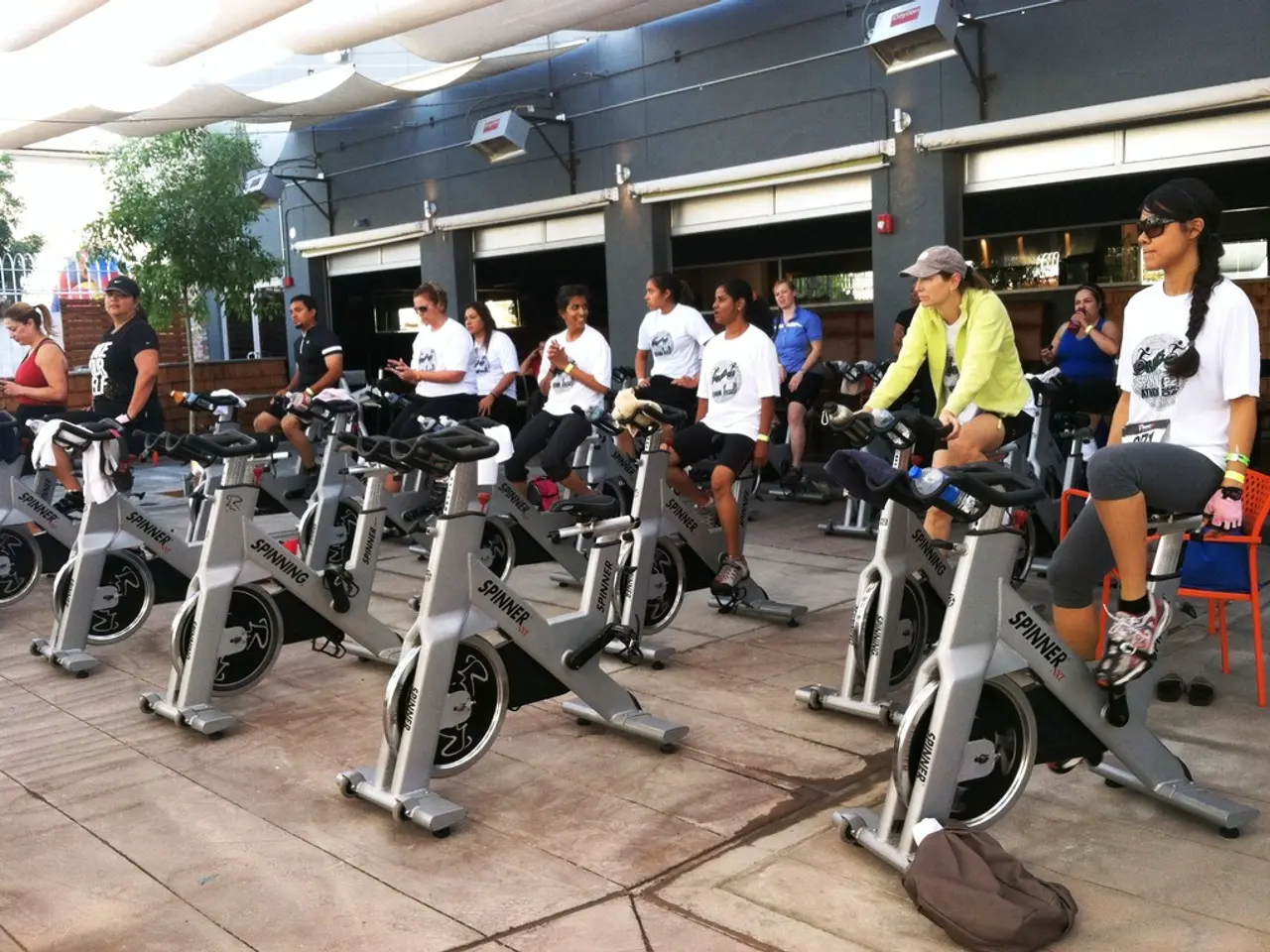Reinvesting in Mature Workforce: Polonia's Population Shifts Fuel the Importance of Training Aged Workers
A sneak peek at Poland's economy reveals a thriving scene, but the nation faces a discreet challenge: an aging population and dwindling workforce. As technological advancements loom on the horizon, the need to reskill older employees becomes paramount to sustain economic growth and stay ahead of the game. Why? Because beyond just being a smart move for businesses, reskilling the over-50 crowd is an essential step to safeguard the country's long-term economic prospects.
Poland's Economic Conundrum
Beneath the surface of dynamic growth figures, a concerning demographic situation persists. With many Polish families choosing smaller families and an underfunded social security system, the nation's future economic health could be in jeopardy, despite its current buoyant outlook.
At the very same time, experts worldwide are buzzing about an imminent technology breakthrough, fueled by robust investments in areas like artificial intelligence. Without solutions to reskill the older portion of the workforce, Poland's economy may find itself barreling down the fast track to a grinding halt within the next decade.
The Silver Generation: A Treasure Trove of Experience
Consisting of approximately 9 million individuals, the Silver Generation—those between ages 50 and 55—forms a significant chunk of Poland's workforce. Beyond their impressive numbers, their decision to stay active in the workforce offers invaluable benefits to businesses and society as a whole. For instance, these workers bring:
- Rich Experience: Their years of knowledge, expertise, and problem-solving abilities cannot be easily replicated by machines or fresh faces.
- Institutional Knowledge: Each employee's background carries unique insights into the company's operations, cultural norms, and business relationships.
- Professional Wisdom: The soft skills they mastered over the years—leadership, communication, and emotional intelligence—are essential for a thriving, harmonious, and productive workplace.
Despite their considerable worth, technological shifts have created an educational vacuum that can widen the gap between older workers and their more technologically adept counterparts.
Bridging the Skills Gap: The Case for Reskilling
Companies that prioritize reskilling their older employees can unlock a range of advantages:
- Fostering Social Contribution: Reskilling allows these workers to continue contributing to the workforce for a longer period, maintaining a sense of self-worth and social engagement.
- Valuing Experience and Wisdom: The soft skills, business acumen, and practical knowledge of older workers are often more valuable than the latest digital fads.
- Cultivating a Forward-Thinking Culture: By proactively developing a reskilling program, companies not only prepare themselves for technological change but also build a resilient workforce that stays up-to-date with emerging trends.
In essence, reskilling is not only about adapting to the future but also about preserving value from the past, fostering a culture of continuous learning, and securing a competitive advantage for businesses alike.
VR Learning Platforms: The Next Frontier
In search of innovative solutions to reskill older workers, virtual reality (VR) learning centers are an attractive option due to their immersive, experiential, and engaging nature. By providing a realistic learning environment that closely replicates modern workflows, businesses can effectively bridge the skills gap and leave older employees feeling empowered rather than intimidated by new technology.
If you're ready to take your reskilling efforts to the next level, we invite you to explore Trainer, a cutting-edge VR learning platform designed to boost engagement, solve complex skills gaps, and drive learning initiatives.
The Bottom Line
In the face of Poland's demographic hurdles, it's evident that investing in reskilling older employees is vital for the nation's long-term economic well-being. By focusing on available solutions like VR learning, Polish businesses can create a resilient, future-oriented workforce that leverages the best of both worlds—the wisdom of the elders and the power of the young.
Are you looking for more HR tech tools for 2024? Check out our recommendations here.
Contributor: Rafał Siejca
Rafal boasts over twenty years of corporate experience, working at Millennium Bank, Comarch, and overseeing software teams at PZU, one of Europe's largest insurance companies. As one of Poland's few true VR experts, he's dedicated to ensuring timely, high-quality project delivery as CEO and CTO of your company.
[1] Roberts, P.D., et al. (2014). "The role of rapid prototyping and simulations in workplace training." Journal of Occupational and Organizational Psychology, 87(1), 113-141.
[2] LeBlanc, B., et al. (2015). "A systematic and comprehensive meta-analysis of virtual reality safety-training studies." Journal of Safety Research, 53, 95-128.
[3] GES Digital Profile: Poland 2020. (2020). Global Entrepreneurship Research Association.
[4] European Youth Forum. (2019). Startup and Scaleup Europe Communique: Transforming Europe's House of Knowledge, Startups, and Scaleups.
[5] OECD. (2019). Going digital: The Future of Work in Poland. OECD Publishing.
- To combat the imminent technology breakthrough and bridge the skills gap in Poland's aging workforce, a focus on education and self-development through reskilling is crucial for the long-term health and wellness of the country's economy.
- By adopting innovative methods like virtual reality learning platforms, businesses can provide an experiential and engaging environment for older workers to absorb new technical skills while preserving their valuable experience, wisdom, and soft skills.
- In the era of lifelong learning, continuous education and reskilling become essential components of a thriving science and technology scene, empowering the Silver Generation to stay relevant and contribute to Poland's economic success.




